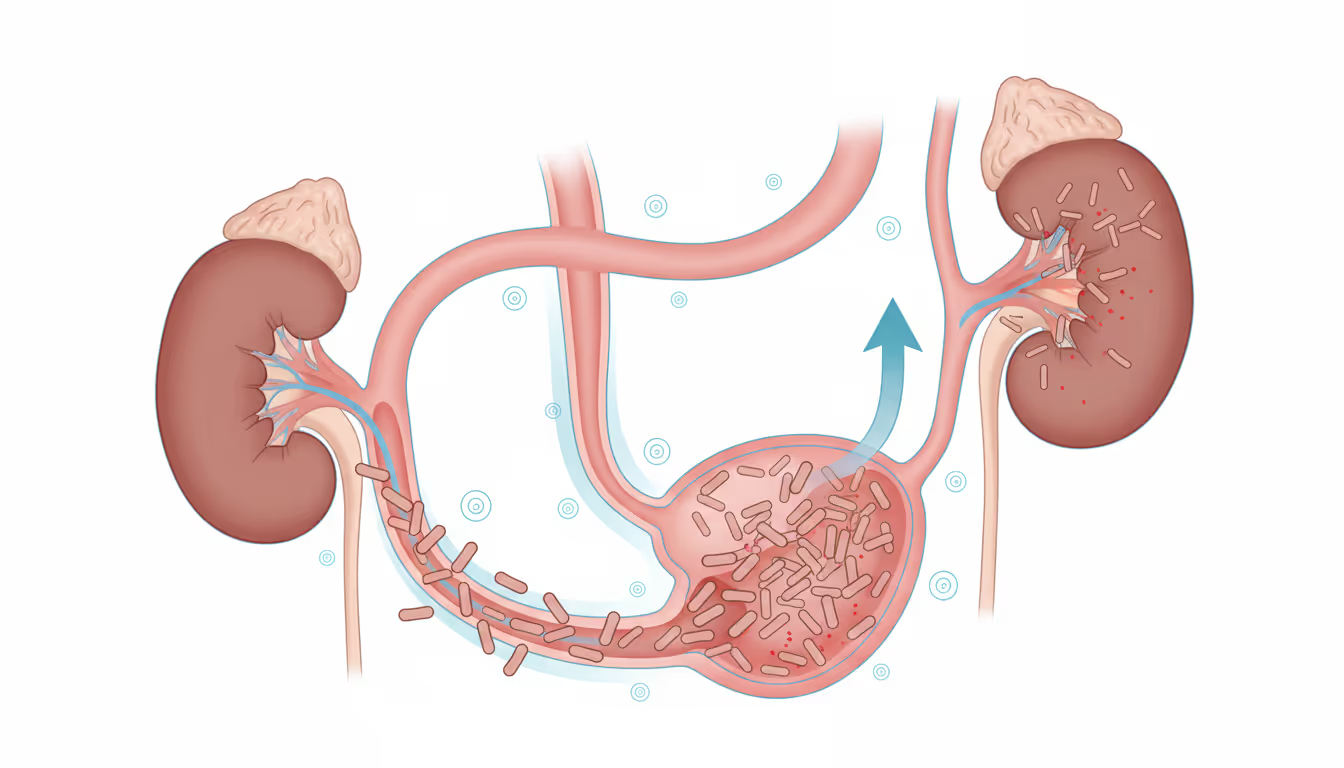
Urinary Tract Infection (UTI):A UTI occurs when microorganisms adhere to the entry of the urinary tract and begin to multiply. Typically, these infections are caused by Escherichia coli, a common bacterium found in the intestines. An infection in the urethra results in inflammation, known as urethritis. If bacteria travel further, they can lead to a bladder infection, termed cystitis, and, if untreated, may reach the kidneys, causing pyelonephritis. Various factors can contribute to the development of UTIs, including any obstruction in the urinary tract, such as structural abnormalities or kidney stones, an enlarged prostate that impedes urine flow, the use of bladder catheters, hormonal changes, and conditions that weaken the immune system. Women are more prone to UTIs than men, likely due to their shorter urethra, which provides bacteria a quicker route to the bladder, and its proximity to bacterial sources like the anus and vagina. Sexual intercourse and the use of diaphragms can also trigger infections in women. While not everyone with a UTI experiences symptoms, common signs include a frequent need to urinate and a painful, burning sensation during urination, known as dysuria. The urine might appear cloudy or milky and could be tinted red if blood is present. Kidney infections can cause pain in the back or side just below the ribs. In children, symptoms might be subtle or misinterpreted. A child with a UTI may be irritable, have a poor appetite, develop an unexplained fever, experience diarrhea, or fail to thrive.




